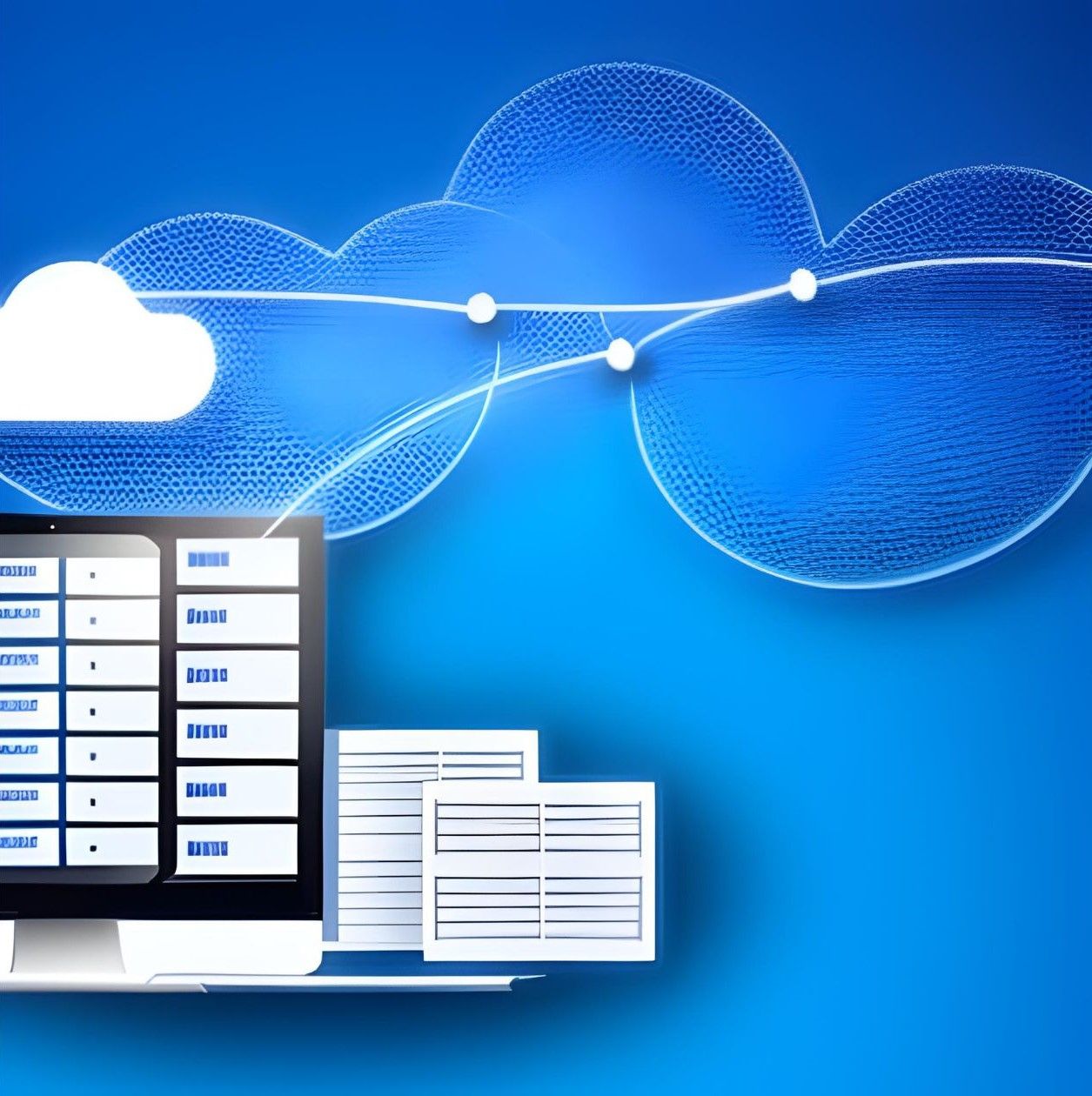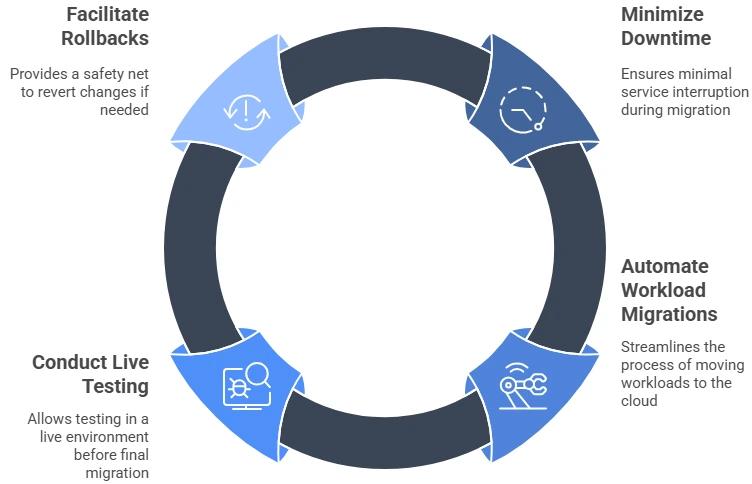
Cloud Migration is not an option but a requirement for companies that wish to remain competitive, cut costs on infrastructure, and improve scalability. However, not all Cloud Migration providers are alike. Selecting the right Migration to Cloud provider can make all the difference in how smoothly your Cloud Migration takes place, how much you pay, and if your business process stays uninterrupted.
If you're mapping out a Cloud Migration plan in 2025, these eight expert recommendations will assist you in choosing the proper provider for a smooth and hassle-free Cloud Migration.
Why Choosing the Right Cloud Migration Provider Matters
Selecting the correct Cloud Migration provider is not merely a technical choice—it's a strategic one. The provider you choose will have a direct impact on your migration's success, timeline, and budget. A qualified and experienced partner can anticipate problems before they occur, tailor the Migration approach to your particular requirements, and guarantee compliance with industry standards and security measures. Alternatively, a misaligned Cloud Provider can result in delays, data integrity concerns, security threats, and wasteful expenses. With so much on the line for this move, aligning with the appropriate migration partner ensures your transition to the Cloud not only goes smoothly but also positions your business for long-term success.

1. Determine Your Business Requirements and Migration Objectives
Prior to comparing providers, determine your Migration objectives. Do you want cost savings, improved performance, increased security, or more flexibility with Multi-Cloud Migration? Various providers are better at other things.
For example, if you require Cloud to Cloud Migration, certain providers are experts at smooth data transfers between public Cloud. Others specialize in Migration as a Service, taking care of all the planning and execution.
Ask yourself:
What workloads are you Migrating?
- Do you require hybrid or Multi-Cloud Migration?
- How much downtime can your business afford?
- What's your budget for cloud migration expenses?
Once you know what you want, it's simple to compare providers against your requirements.
2. Look at Cloud Migration Services Provided
Not all providers provide the same kind of service. Some will do full-service Migration, others only infrastructure setup, and you do application modernization.
A good Cloud Migration provider will provide the following:
- Assessment & Planning – Reviewing current infrastructure and developing a Cloud Migration plan.
- Automation & Migration Tools – Utilizing Cloud Migration tools to reduce downtime.
- Security & Compliance Support – Maintaining data security and regulatory compliance.
- Post-Migration Optimization – Ongoing monitoring and cost optimization.
If a Cloud Migration provider is missing any of these, you can end up with surprise costs or technical debt.
3. Verify Experience with Your Industry and Workloads
Not all Cloud providers have expertise in every industry. If you’re in finance, healthcare, or government, compliance is a significant factor in your Cloud Migration strategy. A provider experienced in your sector will better understand data regulations and industry-specific challenges.
Additionally, different workloads—databases, applications, and virtual machines—require different Cloud Migration tools. A provider with relevant experience will ensure:
- The correct infrastructure is chosen (public, private, or hybrid cloud).
- Workloads are optimized for cost and performance.
- Application dependencies are well-managed.
Request Case Studies or references to ensure their proficiency.
4. Compare Cloud Migration Costs Transparently
Determining the costs of Cloud Migration could be difficult. Providers tend to promote low initial costs but charge extra for extra services such as:
- Data transfer fees
- Storage and compute overages
- Post-Migration optimizations
- Custom integrations
The Cloud provider that you choose should offer a clear cost breakdown prior to purchase and suggest cost-reducing options, i.e., reserved instances or auto-scaling.
5. Ensure the Provider Utilizes Strong Cloud Migration Tools
Smooth Migration relies on the appropriate Cloud Migration tools. An effective provider ought to have automation tools that:
- Minimize downtime and disruptions.
- Automate workload Migrations.
- Conduct live testing prior to final Migration.
- Facilitate rollbacks in case of a need.

Some of the popular Cloud Migration tools are AWS Migration Hub, Azure Migrate, and VPC+ by Wanlouds. Inadequate tools can lead to increased migration costs and unplanned downtime.
6. Search for Security and Compliance Support
Security must never be an afterthought when selecting a cloud Migration provider. Your provider must:
- Encrypt data in motion and at rest
- Enforce Identity and Access Management (IAM)
- Comply with regulations such as GDPR, HIPAA, or SOC 2
- Provide disaster recovery options for high-availability
For Cloud to Cloud Migration in businesses, security threats are heightened as the data travels from one environment to another. Select a provider that guarantees end-to-end encryption and real-time threat detection.
7. Scale for Future Growth
Your cloud Migration strategy should account for future growth. A good vendor will:
- Provide elastic scaling capabilities (horizontal and vertical scaling)
- Enable Multi-Cloud and hybrid approaches
- Offer cost-saving mechanisms as workloads expand
If you anticipate future growth, make sure your provider can Migrate Multi-Cloud, so you're not vendor-locked. Companies like Wanclouds utilize all three of AWS, IBM, and Google Cloud for various workloads.
8. Review Customer Support and SLAs
Migration difficulties don't end once deployed. Robust post-Migration support is necessary for seamless operations. Prior to choosing a provider, ensure their:
- Service Level Agreement (SLA) – What is their uptime guarantee?
- Support Channels – Are they available 24/7 through chat, email, or phone?
- Response Time – How fast do they fix critical problems?
The greatest cloud Migration providers offer a single point of contact to help with constant optimizations, debugging, and cost control.
To begin with, fill out our website form or reach out to one of our sales representatives at [email protected]. Also, for additional information, you can refer to our Case Studies to learn about our previous successful Cloud Migrations.